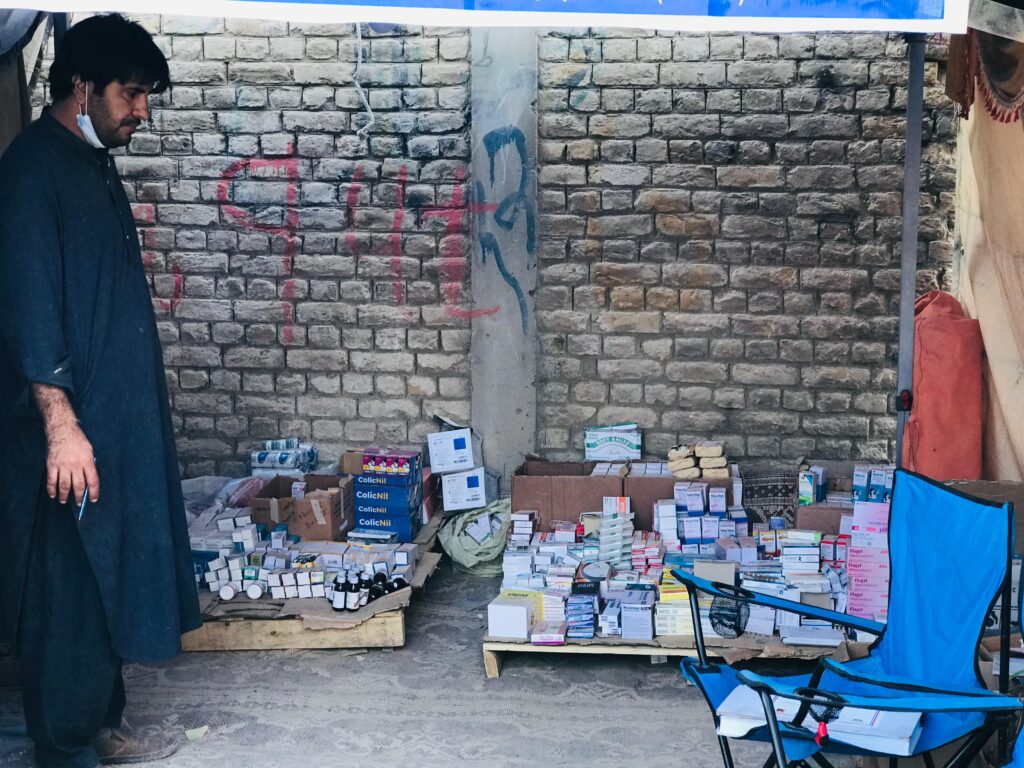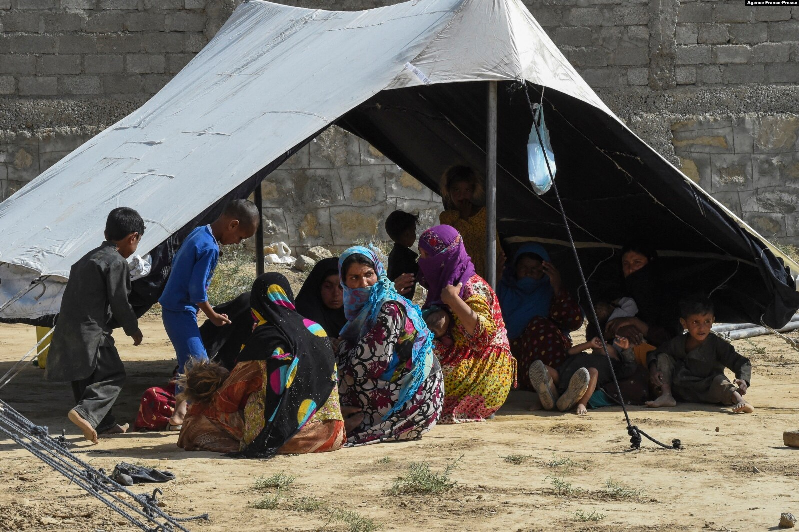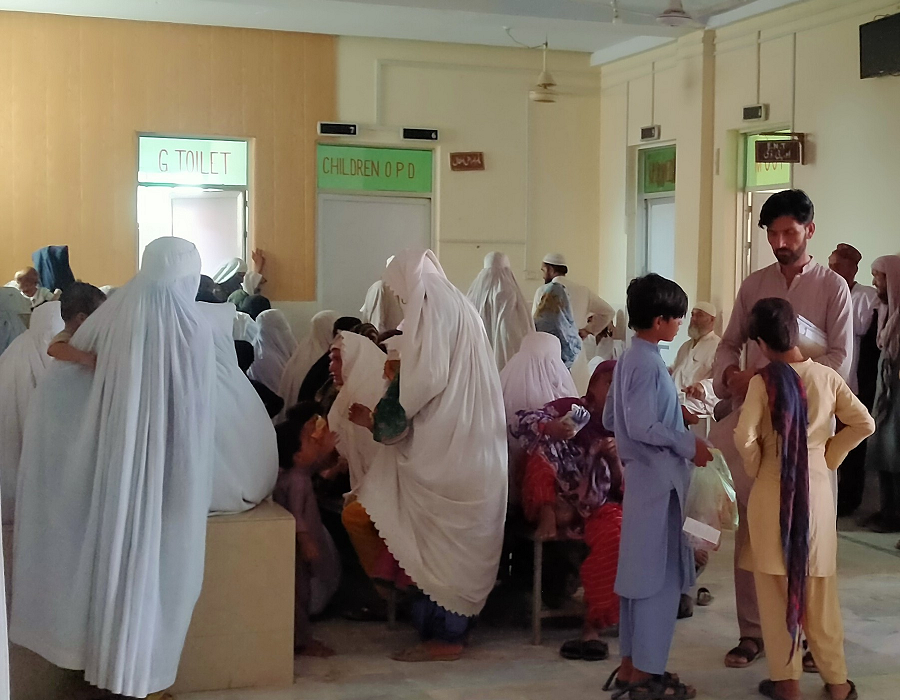My Dreams Are Haunted by Fears and Dangers
Muhammad Hussain
Quetta: In the aftermath of decades of conflict and instability, millions of Afghan refugees have fled their war-torn country, seeking safety and a better future in neighboring nations like Pakistan.
However, while these refugees have escaped the immediate dangers of violence, they are now facing a profound and often overlooked mental health crisis.
This crisis is characterized by widespread issues such as depression, anxiety, and post-traumatic stress disorder (PTSD), which are compounded by the harsh realities of life in refugee camps and uncertain futures.
Samiullah Zazi’s experience offers a poignant glimpse into the mental health challenges faced by many Afghan refugees. Having initially sought refuge in Quetta, Pakistan, Samiullah felt a sense of relative stability.
“When I was living in Quetta, I was in good health, both physically and mentally,” he recalls. However, his peace of mind was shattered by the looming threat of deportation back to Afghanistan.
“Hearing about the possibility of being sent back filled me with dread,” he explains. The thought of returning to a country still ravaged by conflict and lacking in basic services was overwhelming. Samiullah’s fears are not unfounded. Afghanistan’s healthcare system is notoriously inadequate, with many regions lacking proper hospitals and medical facilities. “There’s no good healthcare, no proper hospitals,” Samiullah laments.
Samiullah’s fears are not unfounded. Afghanistan’s healthcare system is notoriously inadequate, with many regions lacking proper hospitals and medical facilities. “There’s no good healthcare, no proper hospitals,” Samiullah laments.
“I was terrified about how I would support my family and take care of my sick parents if I had to return.” His concerns are compounded by the limited opportunities for education and employment in Afghanistan, making the future look bleak and uncertain.
The stress and anxiety of such a situation have taken a heavy toll on Samiullah’s mental health. “I began to experience severe depression and anxiety,” he says.
Read More: https://thepenpk.com/the-afghans-life-in-quettas-refugee-camp/
“The stress of not knowing what the future holds, combined with the trauma of past experiences, has been overwhelming.” His nights are filled with distressing dreams and nightmares, a reflection of his inner turmoil.
“My dreams are haunted by fears and dangers,” he shares, highlighting how his mental health struggles manifest in his daily life. Further, Shagufta, a psychologist working with the NGOs IDO and ECF at the Saranan Afghan Refugee Camp, provides essential mental health services to refugees like Samiullah.
Her work involves offering individual and group counseling sessions, as well as conducting awareness programs designed to educate refugees about mental health.
“We provide a variety of mental health and social services,” Shagufta explains. “Our goal is to help refugees cope with their mental health challenges and provide them with the tools they need to manage their conditions.”
The focus of these services is particularly on Afghan girls, children, and women, who are disproportionately affected by mental health issues due to their unique experiences and vulnerabilities.
“Mental health issues such as depression, anxiety, and PTSD are prevalent among the refugee population,” Shagufta notes. “The trauma of displacement, combined with the uncertainty of their current situation, creates a significant psychological burden.” The lack of adequate healthcare facilities exacerbates these issues, making it difficult for refugees to access the support they need.
The lack of adequate healthcare facilities exacerbates these issues, making it difficult for refugees to access the support they need.
To address these needs, Shagufta and her team conduct mental health awareness sessions in various locations beyond the camp, including Pishin, Killa Saifullah, and Khan Mantarzai.
“We aim to reach as many people as possible through these sessions,” she says.
“Our goal is to provide refugees with the knowledge and support they need to cope with their mental health challenges and reduce the stigma surrounding mental health issues.”
Moreover, Dr Muhammad Nabi, a psychiatrist at BMC Hospital in Quetta, offers a clinical perspective on the mental health crisis among Afghan refugees.
His work involves treating numerous refugees who suffer from a range of mental health disorders.
“We see many Afghan refugees at our hospital, and the most common issues are depression, anxiety, and PTSD,” Dr Nabi explains.
“The trauma they’ve experienced, combined with the stress of living in a foreign country with uncertain prospects, significantly impacts their mental health.” The challenges faced by refugees are compounded by the limited resources and facilities available for mental health care.
“The demand for mental health services far exceeds the available resources,” Dr Nabi says. “Many refugees face long wait times and limited access to specialized care.”
Despite these challenges, Dr Nabi and his team strive to provide comprehensive support, including medication and therapy, to help refugees manage their mental health issues.
Read More:https://thepenpk.com/the-plight-of-trans-individuals-in-quetta/
In addition to formal healthcare services, activists like Arsha Manzoor play a vital role in addressing the mental health needs of Afghan refugees.
Arsha’s work focuses on advocating for refugees’ needs, raising awareness, and providing direct support where traditional systems may fall short. “Many Afghan refugees face severe mental health challenges due to the trauma of displacement and the harsh realities of life in refugee camps,” Arsha explains.
“My role is to bridge gaps in services and offer support where it is needed most.” Her efforts include organizing community outreach programs, support groups, and educational workshops to help refugees understand and manage their mental health.
“We work to create safe spaces where refugees can openly discuss their issues and receive support,” Arsha says.
“By fostering a supportive community, we aim to reduce the stigma surrounding mental health and encourage individuals to seek help.” Arsha’s work is crucial in supplementing the efforts of formal institutions and providing a lifeline for refugees who might otherwise fall through the cracks.
Government support for Afghan refugees includes various programs aimed at addressing their basic needs, including healthcare, education, and financial assistance. However, the scale of the refugee crisis presents significant challenges.
A government representative, who spoke on the condition of anonymity, discussed the steps being taken to support Afghan refugees. “We are committed to providing humanitarian aid and improving the conditions for refugees,” the representative states.
“However, the scale of the crisis presents considerable challenges, and mental health services are one area where more progress is needed.” Despite efforts to expand services and improve access, gaps remain in the support provided. “Mental health services are still limited, and we recognize the need for increased resources and better integration of mental health care into existing support systems,” the representative admits. The government is working on addressing these challenges, but progress is slow and complicated by the sheer number of refugees and the constraints of available resources.
Despite efforts to expand services and improve access, gaps remain in the support provided. “Mental health services are still limited, and we recognize the need for increased resources and better integration of mental health care into existing support systems,” the representative admits. The government is working on addressing these challenges, but progress is slow and complicated by the sheer number of refugees and the constraints of available resources.
The mental health crisis faced by Afghan refugees is a pressing issue that demands immediate and comprehensive action.
The stories of individuals like Samiullah Zazi, the efforts of dedicated professionals like Shagufta and Dr Muhammad Nabi, and the advocacy of activists like Arsha Manzoor highlight the severe impact of displacement and ongoing trauma.
Read More: https://thepenpk.com/quettas-groundwater-levels-fall-dramatically-in-10-years/
Addressing this crisis requires not only improving mental health services but also tackling the broader systemic issues that contribute to the refugee experience. Increased support from governments, NGOs, and the community is essential to providing the necessary care and hope for Afghan refugees.
As the situation continues to evolve, it is crucial for all stakeholders to work together to ensure that the mental health needs of Afghan refugees are met and that they receive the support they need to rebuild their lives with dignity and hope.
In this complex and challenging landscape, the resilience of Afghan refugees stands as a testament to their strength and determination. The collective response from the community, healthcare providers, and government entities plays a vital role in offering them the support and hope they need to overcome their struggles and build a better future.
Muhammad Hussain is a Quetta-based investigative journalist. He is also actively involved in addressing climate change and promoting community leadership.

Comments are closed.